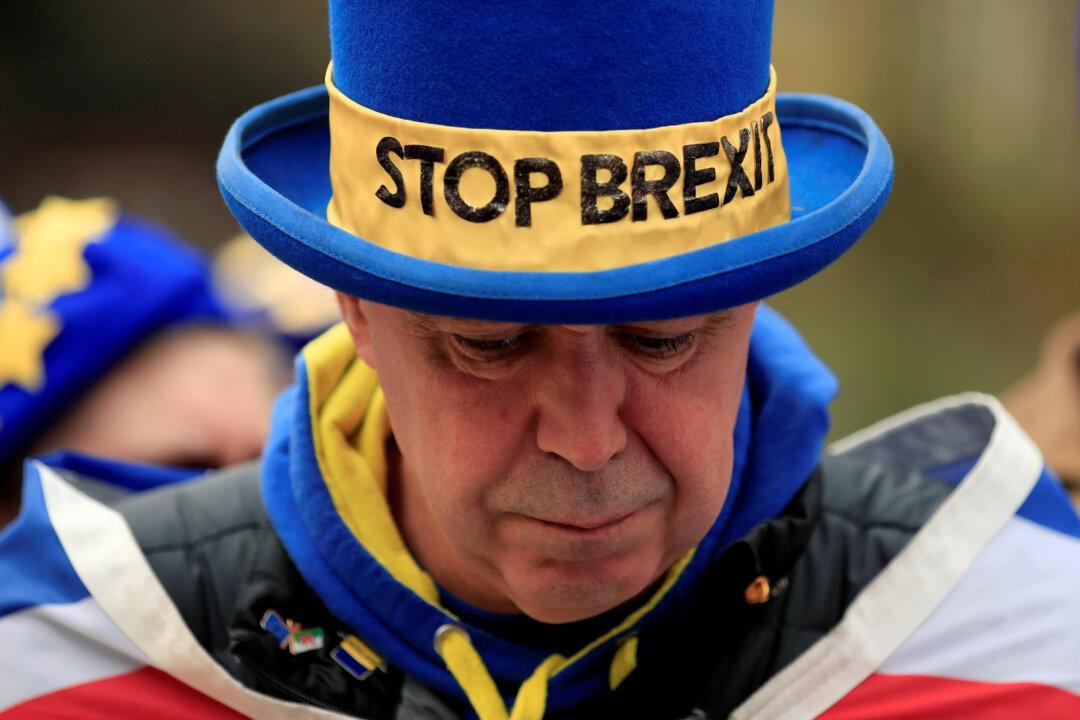LONDON—Brexit hung in the balance on April 8 as Prime Minister Theresa May tried to coax the Labour Party into agreeing a divorce deal with a better chance of passage by parliament, ahead of a crisis EU summit where she will try to delay the April 12 departure.
Britain’s exit from the EU has already been delayed once but May is asking the bloc for yet more time as she courts veteran socialist Jeremy Corbyn, whose Labour Party wants to keep Britain more closely tied to the bloc after Brexit.





